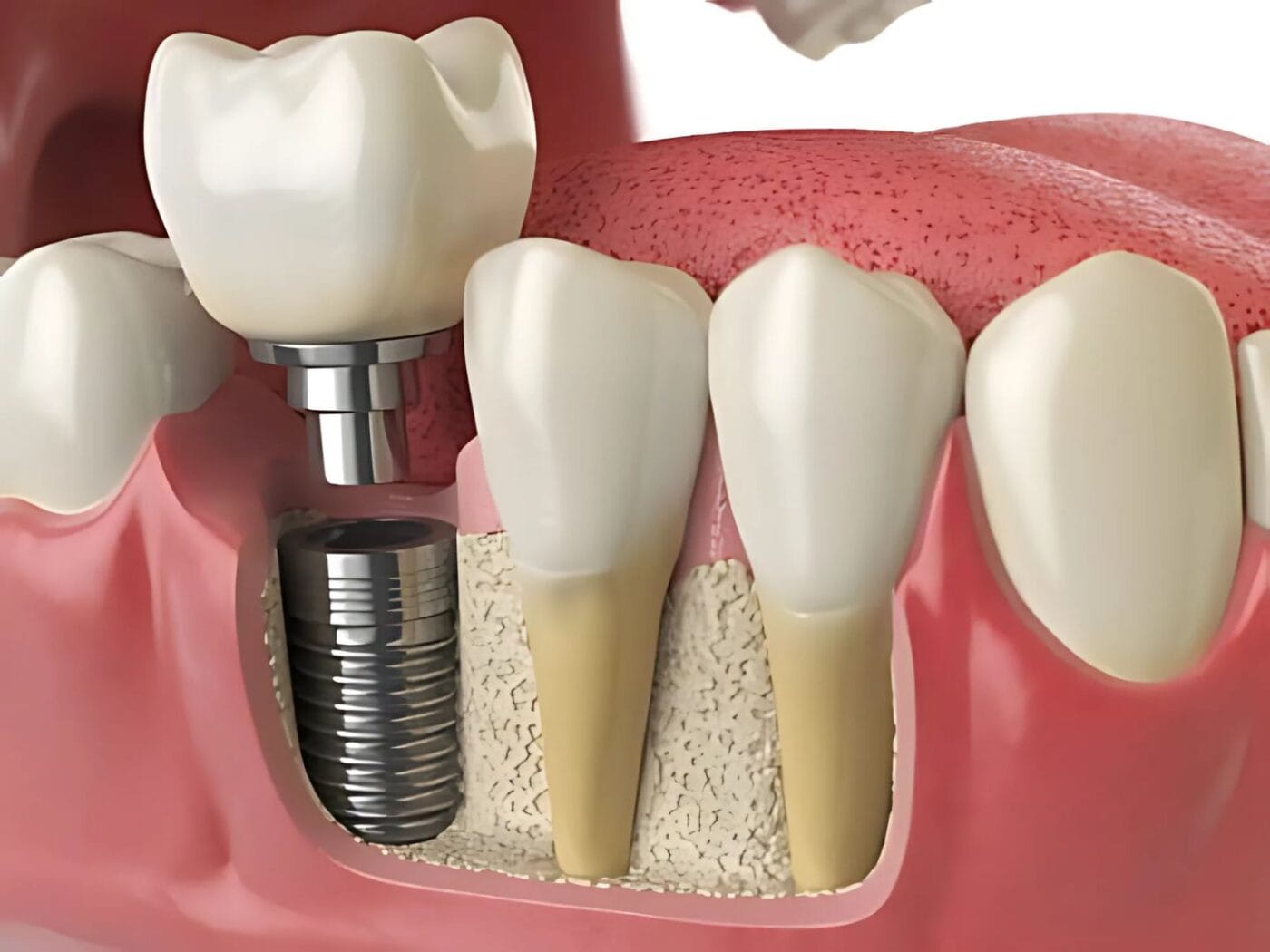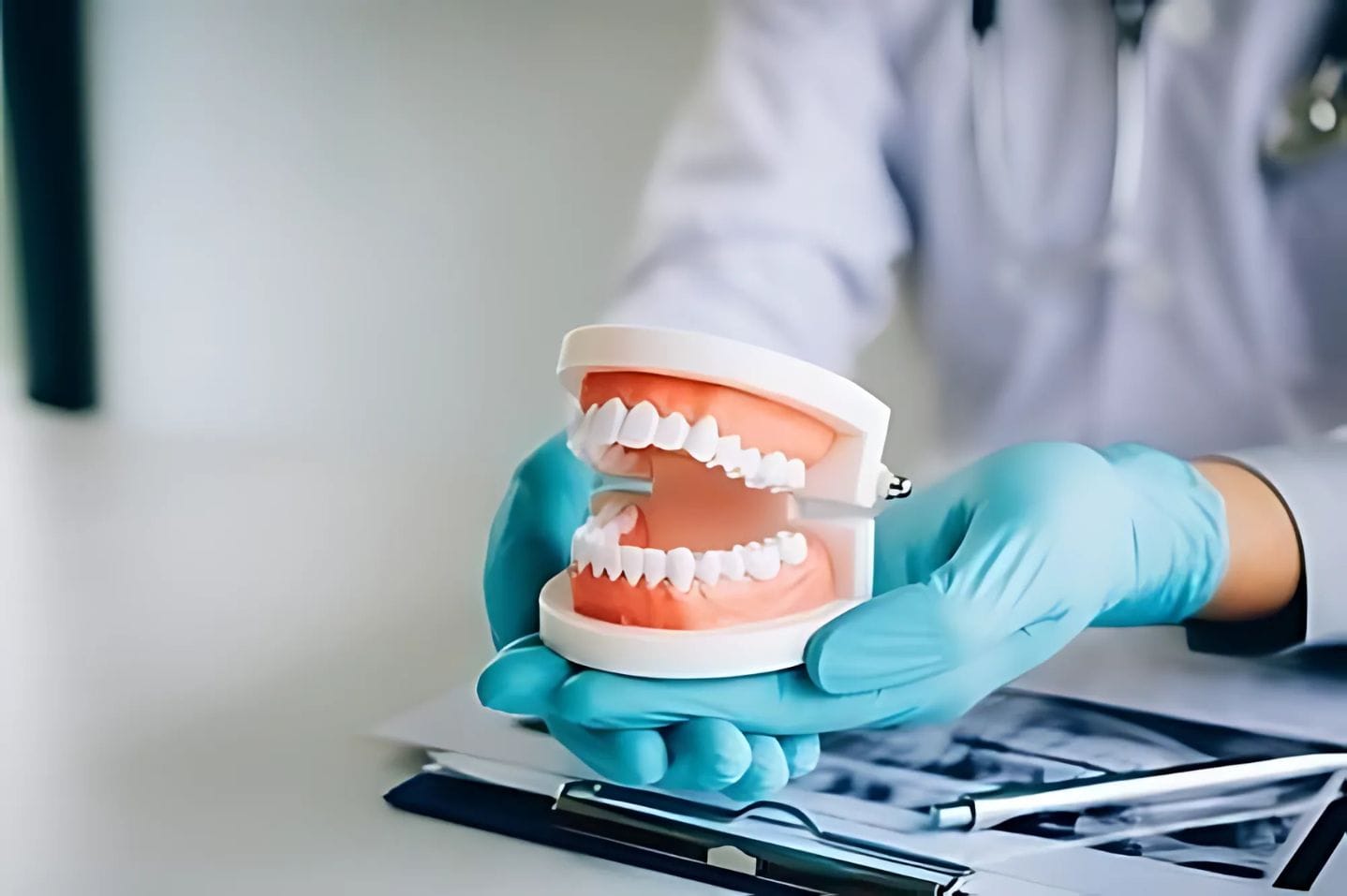You’re losing sleep, your jaw hurts, and chewing is hard. Time to uncover the root cause: wisdom tooth pain.
Your wisdom teeth are the third molars at the back of the mouth. Most often, they appear between the ages of 17 and 25, but many people have the space to grow slowly enough, and some don’t, resulting in impaction.
An impacted wisdom tooth is a wisdom tooth that can’t come through your gums properly because there’s not enough room for it to develop. It can, if neglected, develop into a wisdom tooth infection, an uncomfortable and painful disease.

Anatomy of Wisdom Teeth
But before you can understand the risk of infection and its causes, you first need to understand what the anatomy of your wisdom teeth looks like.
Third molars, also known as wisdom teeth, are the molars located at the back of your mouth. They are not needed for proper chewing and are often removed because they are designed to help you chew difficult foods.
Unfortunately, if there is not enough room for the emergence of wisdom teeth, they can become impacted.
That means it can lead to pain, swelling and other dental problems. Also, impacted wisdom teeth may apply pressure to other teeth or the jawbone causing damage and contributing to tooth decay and destruction of the bone.
Signs and Symptoms:
The amount of symptoms you have will vary depending on the severity of the tooth infection and how severe the wisdom tooth is infected. The tooth itself may or may not hurt, but it can cause the gums around it to swell and be tender to the touch, making opening your mouth and chewing difficult. You might also feel a bad taste in your mouth, bad breath hea,daches, and fever.
Causes :
Some of the causes of wisdom tooth infection are. There are several causes, and one of the main ones is poor oral hygiene, which may result in bacteria and plaque buildup around the tooth.
An infection can also be caused by tooth decay or gum disease since these weaken the tooth as well as any surrounding tissue.
Trauma, such as a blow to the face, can also cause an infection of the tooth or surrounding area.
Third, if impacted wisdom teeth are not treated properly, they can also lead to infection.
Yet, what do you do to prevent having a wisdom tooth infection? Good oral hygiene is the best thing you can do.
It is brushing your teeth twice daily, flossing regularly and using mouthwash to kill bacteria. It is also a good idea to visit your dentist regularly for cleanings and checkups. Often, dental issues can be caught early enough that you stand to prevent them from becoming any more severe.
In this section, we will find out why your wisdom teeth get infected and how to deal with an infected wisdom tooth.
Why Do Wisdom Teeth Get Infected?
For many reasons, wisdom teeth can become infected. A common reason for impacted wisdom teeth is the fact that there’s not enough room in the mouth for the tooth to properly emerge. Also, as we discussed earlier, impacted wisdom teeth can cause pain, swelling and other issues related to dental health.
Crowded teeth in the upper jaw are another reason wisdom teeth become infected since the awkwardly positioned wisdom teeth will grow sideways.
It can make them come in crooked or push against the teeth next to it. It can cause infection and discomfort.
A more sensitive tooth than usual could be a signal your wisdom tooth is infected.
The reason for this sensitivity may be an infection or inflammation in the tooth or around it. If left unattended, this symptom can let the infection get worse, so you should see a dentist right away.
Wisdom Tooth Extraction
However, an infection can only sometimes be treated by removing the wisdom tooth. It is especially true when the tooth causes damage to other teeth and tissue or is impacted. In some cases, the infected tissue may need to be surgically removed.
Depending on your infection’s severity, your dentist will give you advice on what to do.
- Tooth Pain:
Pain in a wisdom tooth may point to an infection. At first, the pain may be very mild, but if untreated, this may turn into more severe pain. You might also sometimes have jaw, ear, or neck pain.
- Inflamed Gums
A common infection symptom of a wisdom tooth is an inflammation of the gums around it. These gums may be tender, red and swollen. If you are having this symptom, dental care is important to get it immediately so this infection doesn’t spread.
- Mouth Tastes Bad
If a wisdom tooth infection is present, it can cause a bad taste in your mouth when the fluid or pus from the infected area drains into your mouth. Ignoring any symptom is not a good idea, especially as this symptom may be indicative of a serious infection that needs to be treated immediately.
- Face Hurts
Pain or swelling in your face and a severe wisdom tooth infection are related. You may also have pain and swelling with some difficulty opening your mouth or swallowing.
You must obtain dental care if you are experiencing these symptoms so the infection does not spread.
Visit professional dental care.

One of the best ways to manage wisdom tooth infections is to find a high-quality dentist in your area. A good dentist can diagnose your infection, treat it, and provide some advice on how you can prevent future infections.
If you are on a budget with dental care worry not because there are dentists who can offer you payment plans or take your insurance.
Best Home Remedies To Reduce Infected Wisdom Tooth Pain
Seeking dental care for a wisdom tooth infection is important, but if you want to try some home remedies to relieve your pain and discomfort, there are some that you can try.
Saltwater rinses are one of the best remedies and can reduce inflammation and speed up healing. Over-the-counter pain relief medication can help manage pain and swelling–try it, along with a warm compress if needed.
What Are The Causes Of A Wisdom Tooth Infection?
Following poor oral hygiene, tooth decay, gum disease, trauma, or an impacted wisdom tooth can lead to a wisdom tooth infection, as we mentioned earlier. If you find yourself feeling any of the stated symptoms you need to seek dental care straight away to keep the infection from spreading.
An infection of a wisdom tooth can be treated conservatively. It involves treating the symptoms of infection, such as pain and swelling, and monitoring the infection to see if it will heal on its own. In most cases, this approach is only used to a lesser degree for gum infections and should only be done under the supervision of a dental professional.
Consequently, infection occurs for various reasons, so prompt symptom onset warrants a visit to the dentist.
Caring for your dental health and taking aspirin as soon as you develop a dental problem can prevent subsequent infections and keep your smile healthy.
Diagnosis of Wisdom Tooth Infection:

Your dentist will do a physical exam and a dental history to figure out if you have a wisdom tooth infection.
Furthermore, X-rays and other imaging tests may be taken to evaluate the tooth and extra tissues. It will allow your dentist to see the best treatment course for your infection.
Treatment of Wisdom Tooth Infection
Treating a wisdom tooth infection should be your ultimate goal, as damage to the surrounding structures can be prevented.
The treatment given for wisdom tooth infection depends on the severity of the infection. If your case is mild, your dentist may prescribe antibiotics to help the infection and may prescribe pain relief medications to help with the pain. Saltwater rinses and other home remedies may be recommended to help them heal. Treatment of wisdom tooth infection may involve wisdom teeth removal.
In severe infection, or if the tooth is impacted or damaged, your dentist may recommend a wisdom tooth extraction. Sometimes, the infected tissue also needs to be surgically removed. The severity of the infection will determine the best course of action to be advised by your dentist.
Prevention of Wisdom Tooth Infection
Preventions:

- Brush and floss regularly to remove plaque and prevent decay.
- Use fluoride toothpaste to strengthen enamel and prevent cavities.
- Avoid sugary foods and drinks.
- Eat a balanced diet rich in vitamins and minerals to maintain healthy teeth and gums.
- Rinse your mouth with water after eating or drinking to remove food particles and sugar.
- Use antiseptic mouthwash to kill bacteria.
- Consider dental sealants as an added layer of protection on back teeth.
- Use MISWAK (a natural toothbrush made of Salvadora Persica tree.) as it has many scientific benefits and also fights bacteria and cavities.
Complications:
Safeguarding our teeth against dental problems is one of the reasons that we need tooth enamel. Most of the time, however, wisdom teeth cause problems because of their placement and eruption. A partially erupted wisdom tooth is a common worry. The trouble with this is that it can cause a variety of complications, including infection and inflammation of surrounding gum tissue.
In such cases, the usual treatment of choice is getting the wisdom teeth removed to relieve discomfort and prevent further dental problems. Treatment should begin as soon as possible for an infection as this can cause pain and swelling and could spread to other parts of the mouth. Even when only one wisdom tooth is affected, Dentists usually suggest that all four be extracted to prevent future problems.
Removal of wisdom teeth can help patients prevent infection, avoid discomfort, and achieve good oral health. That’s why regular dental checkups and good oral hygiene prevent dental problems, such as tooth enamel erosion.
If not treated, It can cause many complications. Sometimes, the infection spreads from an infected tooth into other parts of the body, resulting in life-threatening situations.
In addition, the pressure from an impacted wisdom tooth might cause damage to other teeth and tissues, thereby resulting in abscess or cyst formation.
Conclusions:
Third molars, or wisdom teeth. These can occur at the back of the mouth and can give rise to a variety of dental problems. Pain, swelling and infection if they get impacted. Common signs include discomfort in the affected area, bad taste, swollen gums, and difficulty swallowing or opening the mouth. Poor oral hygiene, gum disease, tooth decay, trauma, or impacted wisdom teeth are some reasons for an infection.
An infected wisdom tooth can usually be treated with medicine, but in severe cases, surgery may be required to treat it. If you have bad pain or facial swelling, you should get to a dentist as soon as you can. Therefore, good oral hygiene, regular visits to your dentist and abstention from smoking and tobacco are key to preventing the infection of wisdom teeth.
Wisdom tooth infection complications may include the spread of the disease through a person’s body. It might damage other teeth and parts of the body and even produce abscesses and cysts. But in some cases, the dentist may prefer that they remove one or more wisdom teeth as a precaution against future issues or to ensure top oral health.
FAQS

What causes wisdom tooth infection?
Generally, wisdom tooth infections are caused by bacteria that get into the gum tissue of the tooth. This may occur if the tooth is only partially erupted and becomes stuck or impacted, which is difficult to clean, making it vulnerable to bacterial growth.
What are the symptoms of a wisdom tooth infection?
Symptoms of a wisdom tooth infection include a toothache, fever, swelling and pain around your cheeks and the back of your jaw, foul breath and pain when chewing.
How is wisdom tooth infection treated?
The severity of the infection determines treatment. In mild cases, antibiotics and pain relief medications may be prescribed. In extreme cases, your dentist may decide tooth extraction or surgical removal of infected tissue is necessary.
Can I prevent wisdom tooth infection?
Yes, better oral care, regular dental visits and refraining from smoking will prevent that.
What are the potential complications of a wisdom tooth infection?
If left untreated, it can spread disease to other parts of the body, damage adjoining teeth and tissues, and give rise to abscesses and cysts. If you notice an infection from a wisdom tooth, seek prompt treatment to avoid possible complications.


